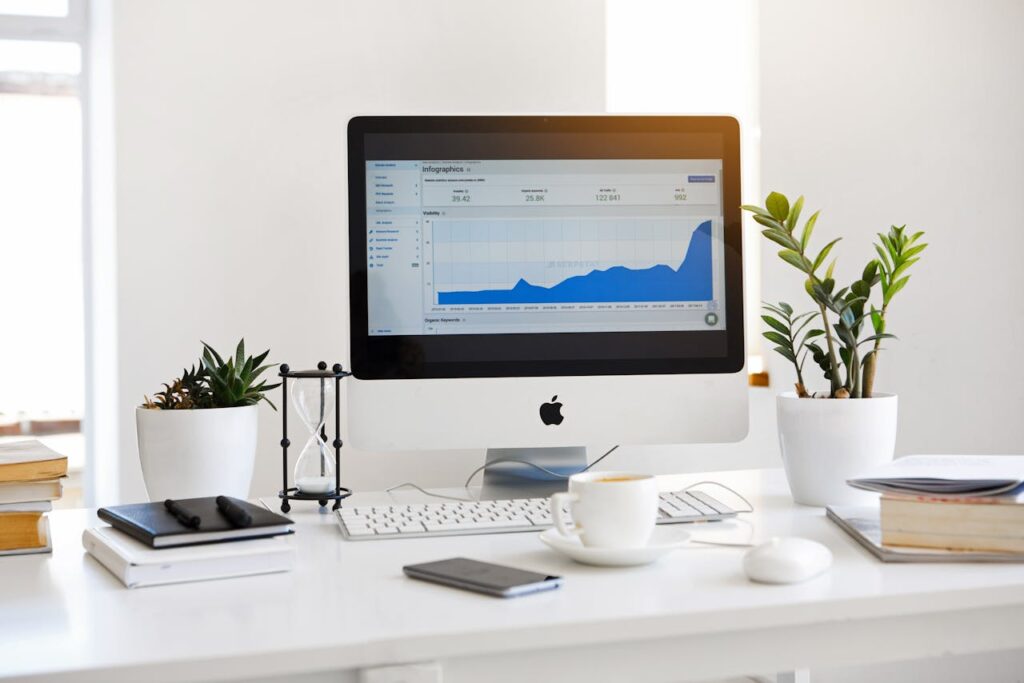
Blog
How to select the right website for your external link

Hieke Hulzebosch
-
30 October 2025
-
9 minute read

When you own a website, it’s only natural that you want to give it some attention. One of the main goals is to make your website rank higher on Google. There are several ways to do this: by having a well-built website, publishing high-quality SEO content, and through link building. Links that lead to your website are then placed on an external website. However, it’s important that these links appear on strong websites, as this boosts your site’s authority. Below, you’ll find exactly how to select the right website for your external link.
Why is choosing the right link partner crucial?
To start with, it’s important to understand why finding the right link partner matters. Link building is one of the most important SEO factors there is. However, not every backlink you place is equally valuable. That’s why quality should always come before quantity. If you ignore this, it can even harm your website. Think, for example, of spammy or irrelevant links. If Google notices this, your site can be penalized. This blog helps you with a practical approach to choosing the right website for your external link.
Relevance is key: does the content match your niche or topic?
When placing links on an external website, relevance is key. The link should make sense for both the user and the search engine. Therefore, it’s smart to check whether the content on the site matches your niche or topic. Google also evaluates the context of the page’s content. For example, if you sell shoes, it makes sense to place a link on a site like shoes.com. But if you sell tulips, that wouldn’t be a logical choice. Relevance is extremely important if you want to build a healthy link profile.
Website authority: how strong is the domain?
In addition to relevance, it’s important to look at the strength of the domain. Your link should actually add value. You can check this by looking at the Domain Authority (DA) of a website, which indicates its popularity and authority. This metric helps you identify domains that are strong and relevant for your link. Various tools can measure this, such as Ahrefs, Moz, Semrush, or Majestic. Keep in mind that smaller websites can also be valuable within their specific niche.
Content quality: professional, unique, and up to date?
A website consists of various blog posts and other types of content. To find the right site for your link, you should also look at the quality of that content. Make sure the site publishes original, well-written material. A good website should have no spelling or grammatical errors and should avoid keyword stuffing. A site should also stay active — check if it’s updated regularly or if it looks abandoned.
Technical and visual quality of the site
Even if the content is strong, the site also needs to perform well technically and visually. Check whether it’s mobile-friendly and loads quickly before placing your external link. Clear navigation and a clean structure are also important. Make sure there are no intrusive pop-ups or spammy ads when you open the website. This helps you determine whether the site is technically sound and visually suitable for your external link.

The website’s own link profile
Besides your own external links, the website’s own link profile is equally important. You need to assess whether the profile looks natural or over-optimized. It’s also worth checking where the website links to — does it point to spammy or suspicious niches such as adult, pharma, or casino sites? If so, it’s best to reconsider. A healthy website also has a diverse set of referring domains and a good balance between incoming and outgoing links. Tools like Ahrefs, Semrush, or Majestic can help you analyze this.
Traffic and engagement: is the website actually visited?
Placing an external link takes effort, so it’s worth finding out if the website gets real traffic. You can use the same tools mentioned above to check this. If the site has very little traffic, it may not be a good option. However, always consider the context: is it a new website, a neglected one, or perhaps a niche site? Conducting thorough traffic research is therefore recommended.
Guest post or sponsored placement: transparency and cooperation
Many websites accept sponsored posts or guest articles. Check whether it’s an open platform where anyone can publish, or if posts are editorially reviewed. Guest blogs can be highly valuable for your link, especially if you can write them yourself — allowing you to fully control the content. Sometimes you’ll deal with sponsored placements; in that case, pay attention to whether a nofollow or sponsored tag is required, as this can be mandatory. If you’re unsure, review the site’s professionalism and communication quality. That way, you can be confident your external link will be handled properly.
Future-proofing: will the link stay online for a long time?
An external link can stay on a website for a long time, but not always permanently. Therefore, check whether the site offers temporary or permanent placements. Ideally, your link should remain visible for as long as possible to maximize its benefit. Look for guarantees about permanent placement and ensure your link appears in a relevant section — either on an existing page or in newly written content. If, in the future, information in the text changes, it’s good to have the option to update the article or the link itself.
Price-quality ratio
Placing an external link naturally costs money — but what exactly do you get for that investment? Are you paying only for the link, or also for quality content and distribution? Compare different options and evaluate sites carefully. One useful alternative is Popi.nl, which saves you time and effort. There you can easily see rates, website categories, and statistics, and even have the content written for you. Remember: cheap often means low quality. A low price usually signals a weak website. Check out Popi.nl — and if you’re unsure, you can always request a strategy from the experts behind it. This helps you allocate your budget smartly across multiple websites.
Red flags: when to avoid a site
Here’s a short list of red flags to avoid, so you don’t make the wrong choices when selecting a website for your external link:
- Excessive number of outgoing links on each page
- Websites that publish about every possible topic without a clear niche
- Only paid placements, no editorial integrity
- Sites with little or no traffic, strange domain names, or no SSL certificate
- Duplicate or mass AI-generated content
Handy checklist: what to check before you decide
Before selecting a website for your external link, make sure to go through this checklist:
- Relevance to your niche
- DA/DR/trust flow + organic traffic
- Quality and freshness of content
- Natural and healthy link profile
- Technically sound (mobile-friendly, fast, indexable)
- Price-quality ratio + guarantee of placement
Strategy over quick wins
Finally, remember that strategy always beats quick wins. Link building is a long-term investment — keep that in mind. Finding the right website can be time-consuming if done manually, but through Popi.nl it becomes much faster and easier. It’s better to choose one good link than ten poor ones. Always consider your target audience, think about Google’s perspective, and make your external link count.
About Hieke Hulzebosch
Energiek en vrolijk, zo zou je mij kunnen omschrijven. Met mijn twintigjarige leeftijd ben ik de jongste van het stel, maar zeker niet de stilste. Zo ben ik begonnen bij Popi als stagiair en bleef ik plakken tijdens mijn studententijd. Na mijn opleiding Mediaredactiemedewerker was de keuze voor Popi al snel gemaakt om vast te komen werken. Elke dag ben ik bezig om de leukste teksten te schrijven en dit doe ik dan ook met veel plezier en energie van achter mijn bureau aan de Willemskade.

Hieke Hulzebosch
Buy your links directly at the source
Discover the secret of thousands of SEO marketers and agencies, link building was never this easy.
Register for more infoYou might also like
View all blogs
Why link building still influences Google AI Overviews
-
14 January 2026
-
8 minute read

How to make your website SEO-friendly in 8 steps
-
19 November 2025
-
11 minute read

Everything you need to know about local SEO
-
07 November 2025
-
9 minute read

Start with link building, join our platform now
Popi is a linkbuilding platform for SEO-marketers and business owners who want to improve their websites position.
Register for more info



